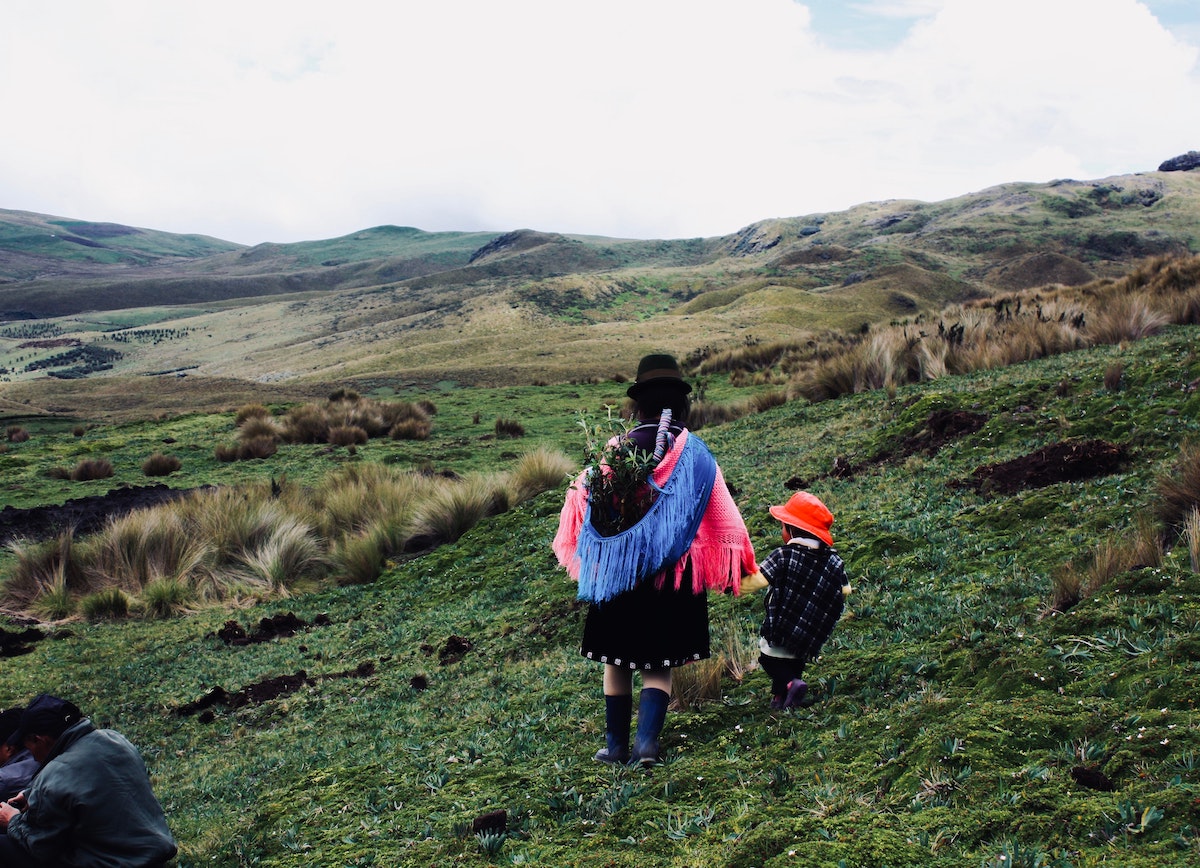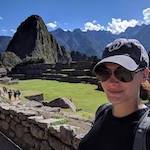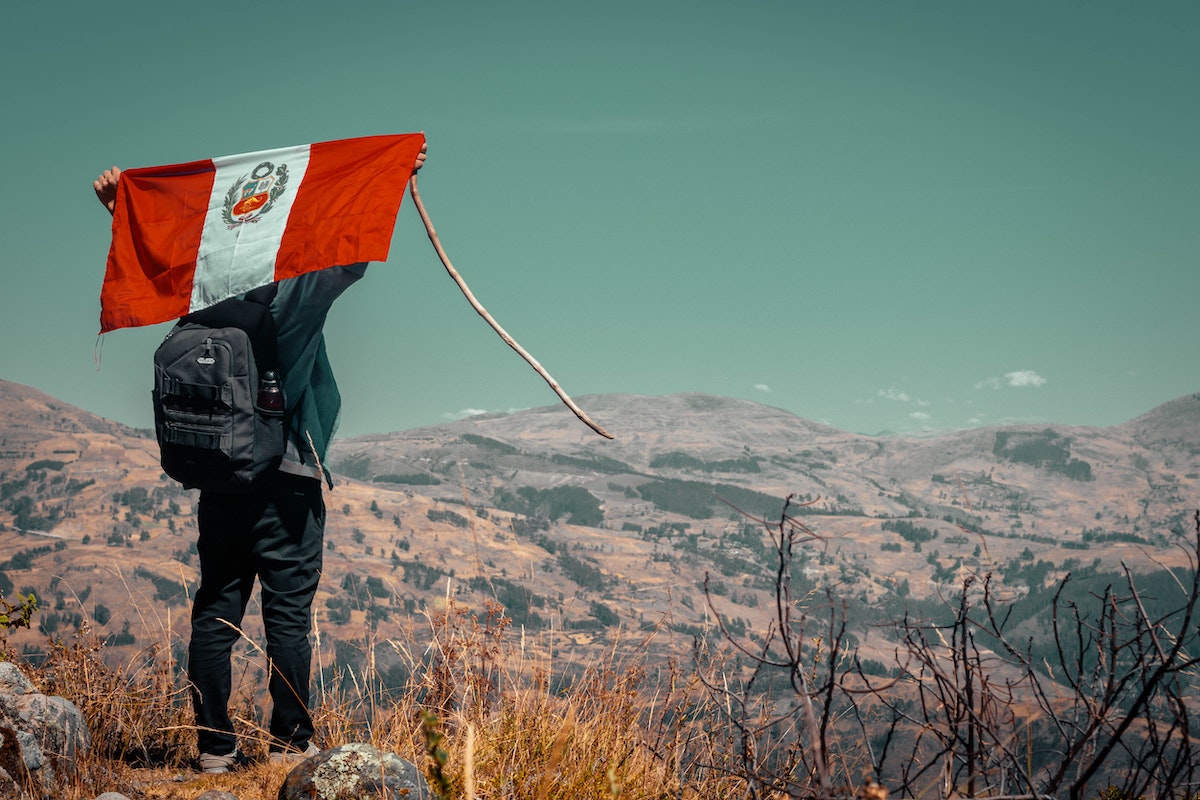By: Sarah Stone
In this interview, I talked with Dani, who volunteered to teach English and support underserved communities in Lima, Peru with International Volunteer HQ. If you’re interested in volunteering in Peru with IVHQ – or volunteering elsewhere, with a different organization – be sure to check out the Frayed Passport guide to ethical volunteering abroad programs.

Photo by Azzedine Rouichi on Unsplash
FP: What made you initially decide to volunteer? Is that still what drives you?
DS: My motivation to volunteer is multifaceted. Primarily, I have a strong desire to help others and make a difference in the world. My mother raised me to be an extremely compassionate and empathetic person, so I can’t overlook the plight of anyone. Additionally, I love traveling, meeting new people, and learning about other cultures; so volunteering abroad allowed me to combine all these interests into one experience.
FP: Which group did you volunteer with? How did you find out about them?
DS: Most recently, I volunteered with International Volunteer Headquarters, who placed me with a local Peruvian organization called Kuyay Sonqo (“Compassionate Heart” in Quechua). I found out about IVHQ while searching the net for affordable international volunteer programs. The organization was right for me because not only did it fit my price range, but it was also extremely professional. I would definitely recommend IVHQ or Kuyay Sonqo to any potential volunteers.
FP: How did you prepare for volunteering in Peru with IVHQ? Did they help you with the process?
DS: To prepare for my trip I did some research on Peru, spoke to one of my professors who has frequented the country, and got all my shots. I also spent some time practicing my Spanish. IVHQ was really great with the whole process. They kept regular email contact with me and sent me a huge volunteer workbook with tons of information on Peru and useful advice to be a successful volunteer. They also have a great Facebook page that allows you to connect with the people you’ll be volunteering with prior to your start date.
FP: What type of work did you do?
DS: There were three major projects the volunteers could work on. Two days a week, I assisted a kindergarten teacher in an underprivileged neighborhood. I helped the children with their schoolwork, taught them some English, and played with them at recess. Three days a week, I went to a home for the elderly and mentally disabled. The majority of these people had been abandoned by their family, so a big part of our work was simply spending time with them as friends. We did a variety of activities with them, ranging from bingo to taking them to the zoo. We also planted them a garden so that the home could be more self-sustaining. Two afternoons a week, the female volunteers went to a home for sexually abused girls and taught English.
FP: What was your favorite part of the volunteer experience? Your least favorite?
DS: My favorite part of my experience was the opportunity it afforded me to really get to know the local people. Living with a local family really allowed me to immerse myself in the culture. I fell in love with the people, the food, and the country. It’s much more difficult to come up with a least favorite part, as my experience was so positive. I guess the lack of sleep was the most problematic, but this was mostly the result of my constant excitement.
FP: Did you experience culture shock on your trip? How did you adjust?
DS: Culture shock wasn’t really an issue for me. Half my family is Mexican so I have a lot of pre-exposure to Latin American culture and the Spanish language (which had already spent a lot of time studying before my trip). Additionally, I’d been to Mexico numerous times growing up so I had an idea of the level of affluence to expect. The one thing that did take me for surprise was that prior to visiting South America I had thought all Latin American food was similar to Mexican food; definitely not the case. A tortilla in Peru is an omelet!
FP: Did you get along with the other volunteers and staff? Do you keep in touch now?
DS: I absolutely love the family I lived with and the volunteers I worked with. My host family was so welcoming and warm. I can’t believe how close I got to them in such a short time. They really made me feel like a part of the family and I miss them very much. Facebook has been a great way to stay connected. I like to check in with my host family, and remind them of how grateful I am, and I love reminiscing with the other volunteers. We’ve talked about volunteering somewhere together again this summer. It would be great to see everyone again.
FP: What was it like returning home? Have you changed any of your habits or incorporated any of your volunteer experience into your everyday life?
DS: Coming home was bittersweet. I had missed my husband a lot, especially in the last week, but it was really hard to leave Lima and wonder if I would ever have the chance to return. I like to think that I took all the lessons I learned there to heart and have incorporated them into my life. One obvious way my time as a volunteer changed my life was that I decided to continue with Spanish classes, which I had previously decided to quit.
FP: What advice would you give to a potential volunteer?
DS: Make sure you do your research and choose the program that is right for you. You will get a lot more out of the experience if you are working on something that truly interests you. Take into account as many aspects of the program as you can, from food to accommodation.
FP: Would you work on a service project again? Where would you like to go?
DS: I would love to volunteer abroad again. Since a lot of my studies focus on Latin America, I would like to stick to South American and Central American countries, possibly Chile.
About the Author
 As the editor-in-chief of Frayed Passport, my goal is to help you build a lifestyle that lets you travel the world whenever you want and however long you want, and not worry about where your next paycheck will come from. I've been to 20+ countries and five continents, lived for years as a full-time digital nomad, and have worked completely remotely since 2015. If you would like to share your story with our community, or partner with Frayed Passport, get in touch with me at sarah@frayedpassport.com!
As the editor-in-chief of Frayed Passport, my goal is to help you build a lifestyle that lets you travel the world whenever you want and however long you want, and not worry about where your next paycheck will come from. I've been to 20+ countries and five continents, lived for years as a full-time digital nomad, and have worked completely remotely since 2015. If you would like to share your story with our community, or partner with Frayed Passport, get in touch with me at sarah@frayedpassport.com!
Featured image via Unsplash.

